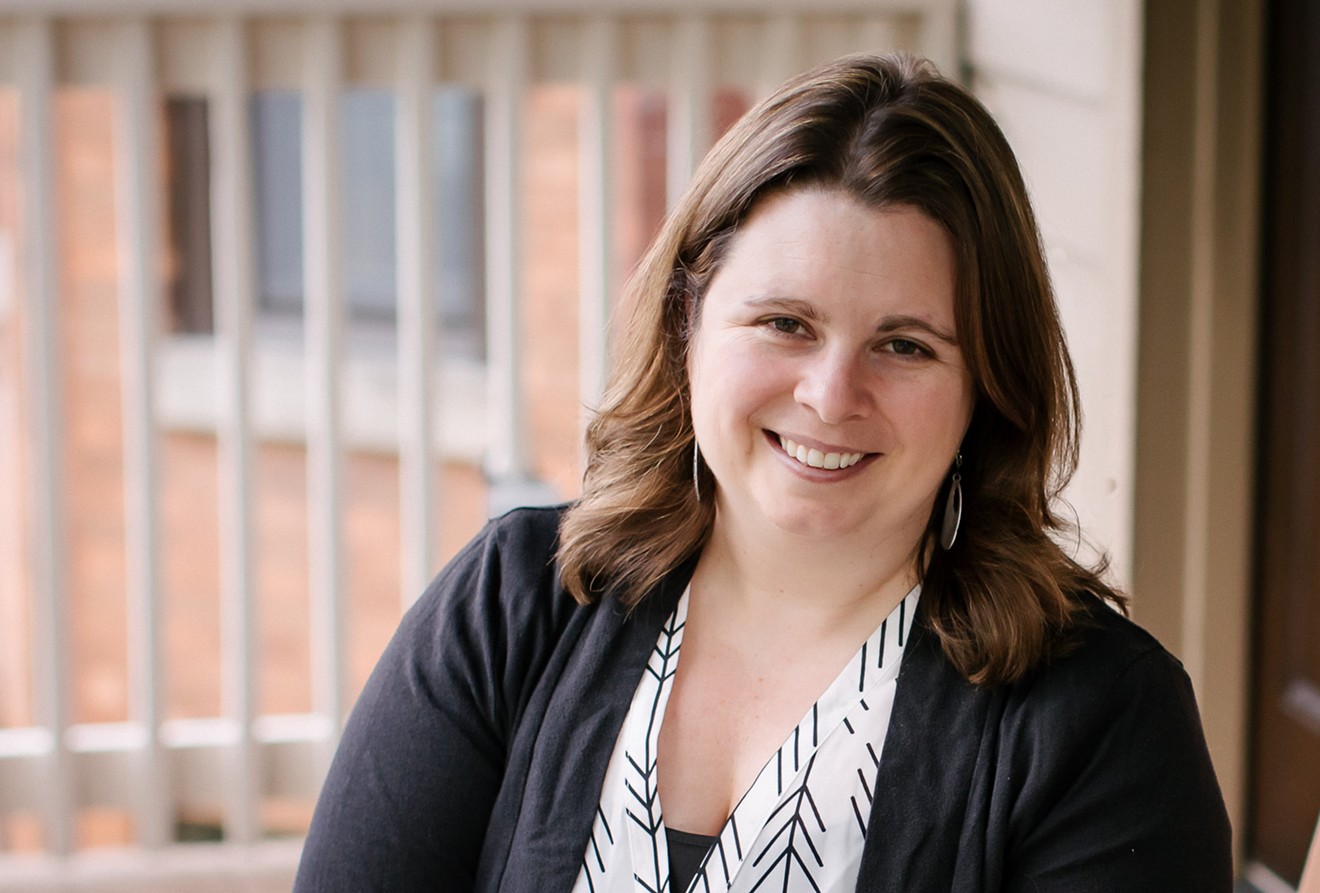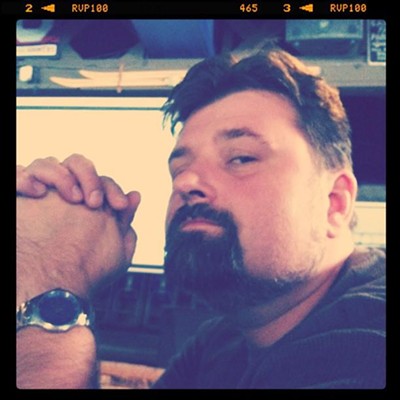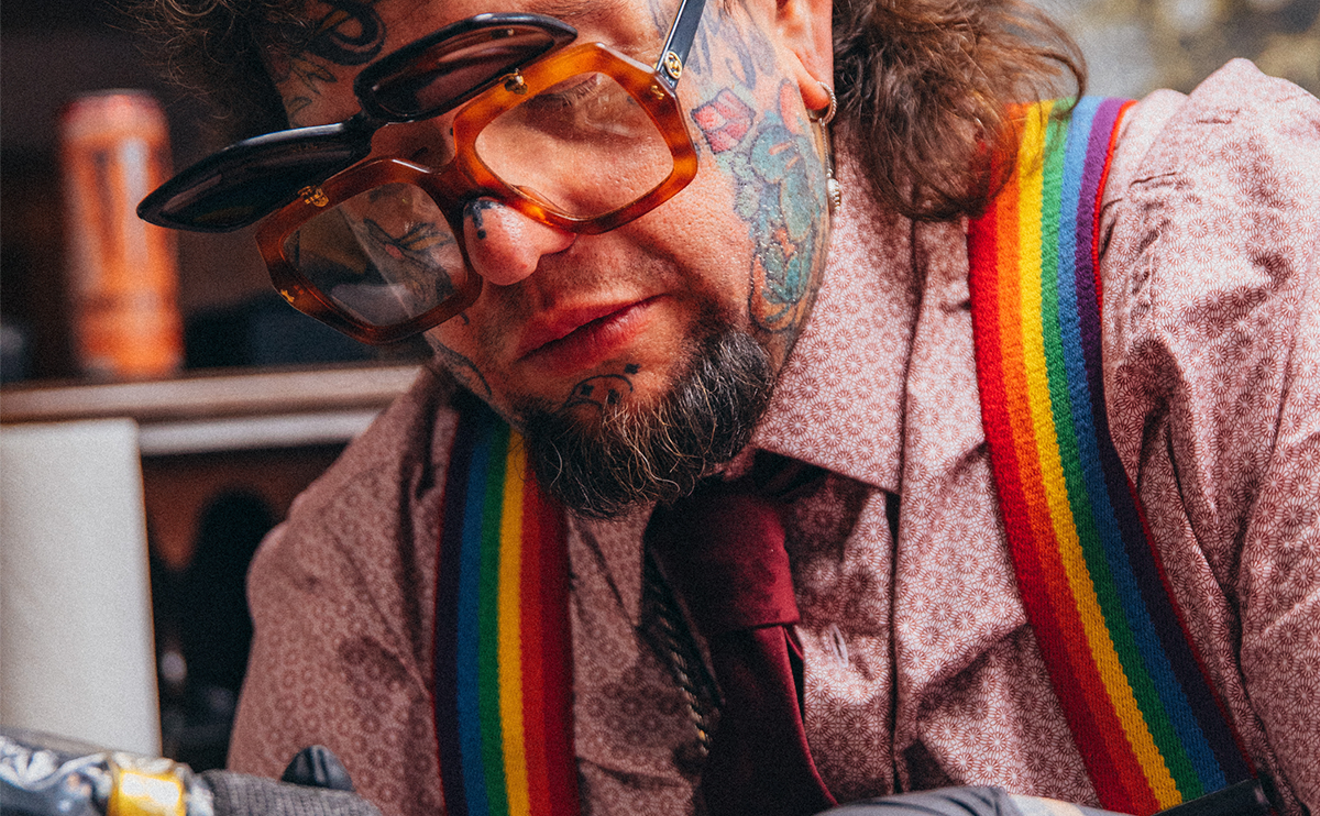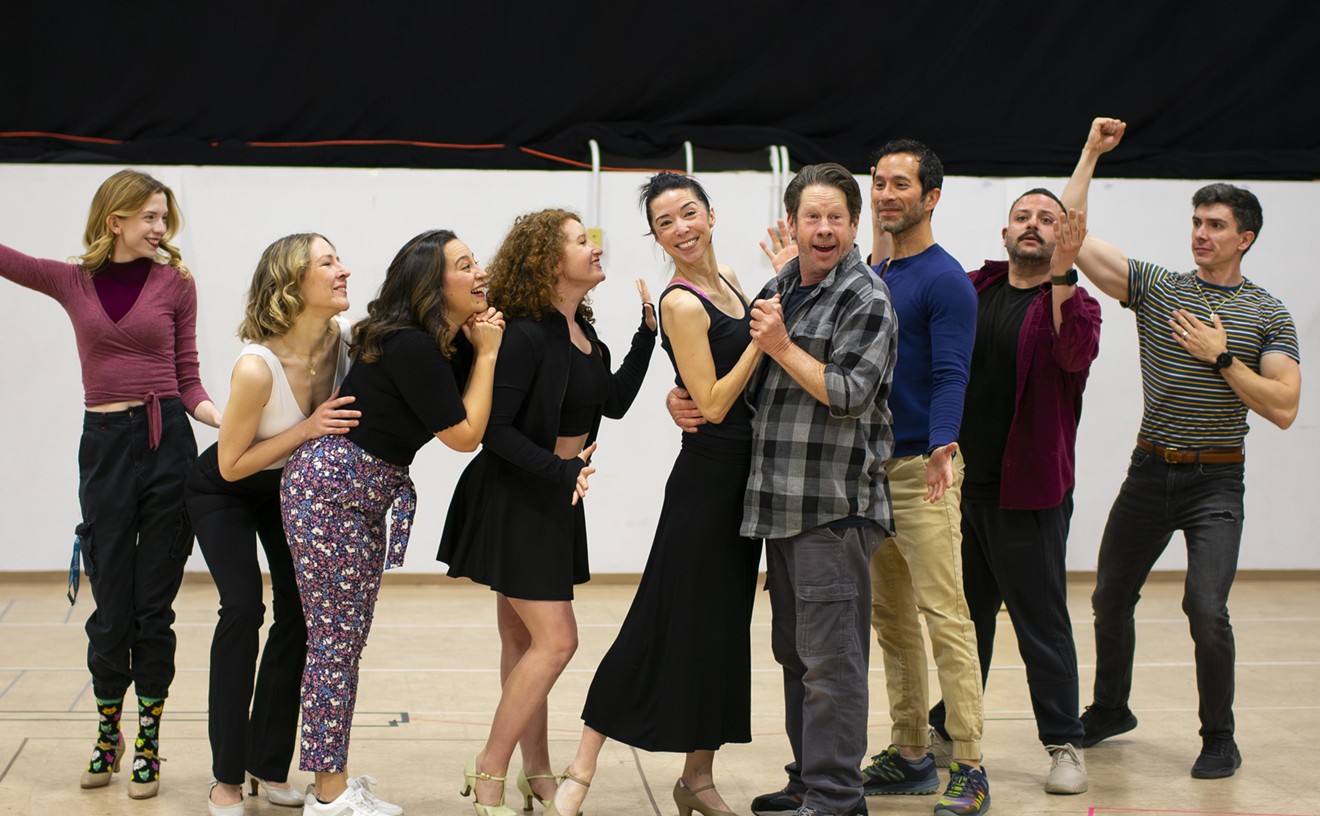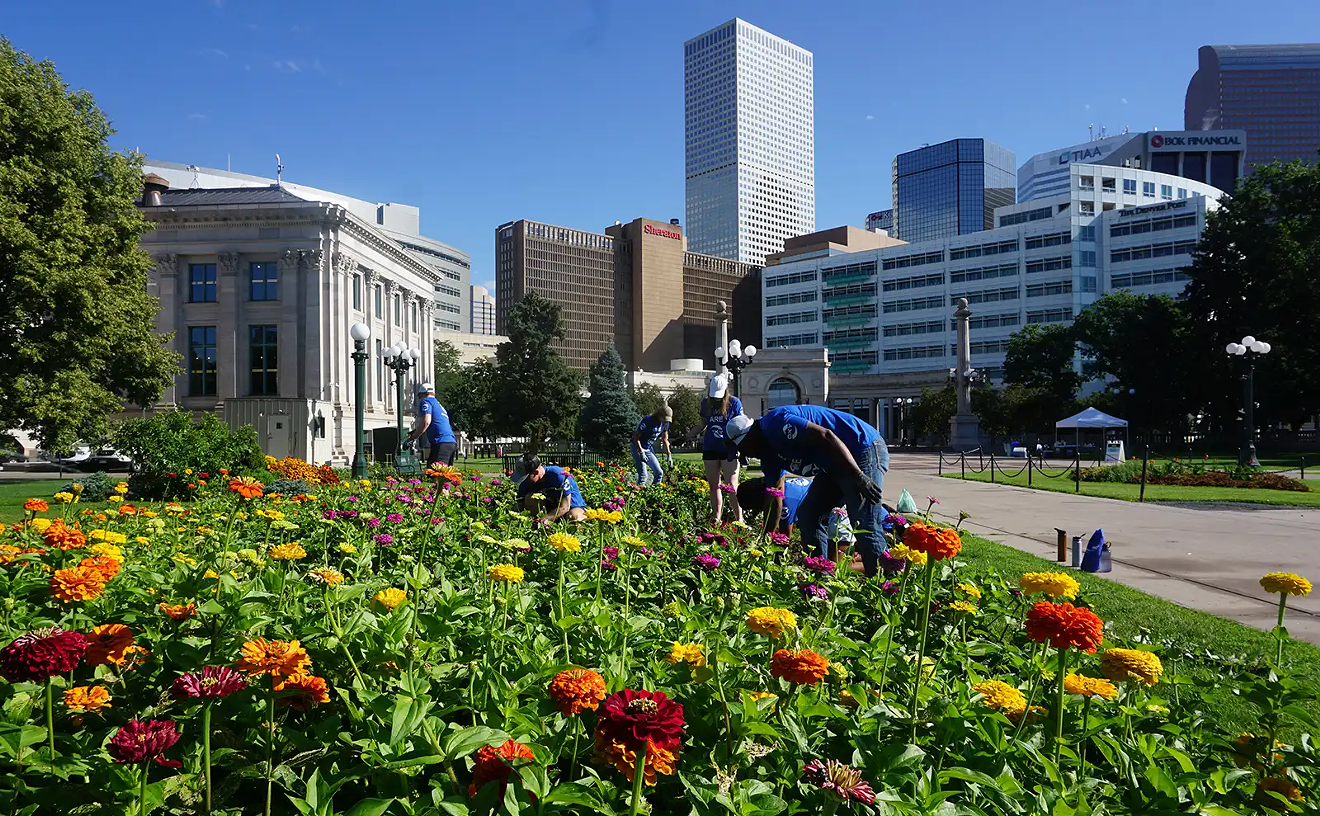Okay, so there probably won’t be talking meerkats and warthogs dancing and singing through the African wilderness…but Keena Roberts is going to entertain with stories from the real-world Botswana nonetheless. Her new book, Wild Life: Dispatches From a Childhood of Baboons and Button-Downs, is full of funny and tender tales of growing up in two geographically disparate worlds: the African savanna and prep-school Philadelphia. And also what those two wildernesses have in common.
The child of scientists, Roberts split her adolescence between an island camp in Botswana and a home in the heart of the USA. Her unique experience — in turns hilarious and heartbreaking — is on full display in the fascinating memoir that Booklist calls “impossible to put down.”
We caught up with Roberts in advance of her reading and signing at the Tattered Cover on Monday, November 25, to talk about the book, how it might be contextualized for American readers, and — of course —The Lion King effect.
Westword: You're visiting the Tattered Cover in Denver with your new book Wild Life. What do you have planned for the event? Have you been to Denver before?
Keena Roberts: I haven’t been to Denver before, and I’m really excited to explore the city! I have some good friends in town who are craft-beer enthusiasts, so I hope after the event we can try some local specialties. In terms of the event itself, my favorite part is always connecting with readers and hearing what resonated with them about the book. I was in Boston recently and had a whole conversation with some kids at the reading about building campfires, and that was incredible.
You grew up with famous primatologists for parents; how did that make your life different from the lives of your peers? What do the kids of famous scientists go through that your average teen doesn't?
Given the unusual way that I grew up, I had a lot more independence a lot earlier on than most of my peers: I started driving our family’s truck when I was nine years old and our boat soon after that. Since it was just our family living in camp, everyone had to pitch in to help keep the camp running and make sure we had enough food and clean water. Since our time in Botswana was always limited by the length of my parents’ research grant, they worked extremely hard while we were there, whether it was collecting data out in the field or cleaning the recordings of baboon calls back at camp. Helping with their research became part my day, too, and it was interesting to be involved in their day-to-day in a way that other kids often aren’t with their parents’ work.
You compare the wilds of Africa to the equally wild halls of American prep school. Can you talk a little bit about how those two worlds are similar?
There’s a lot of fear and uncertainty in both places, especially if you’re a weird kid like me who didn’t fit the image of a “conventional” American teenager. I actually thought a lot about fear when I was writing this book, and tried to explore why Baboon Camp, an objectively dangerous place, felt safer to me than an American high school, and I think a lot of it had to do with the rules of the natural world. For example, if I was out with the baboons and ran into an elephant, if I stayed upwind of the elephant and out of his way, he wasn’t likely to charge, and we could just both go about our days. In contrast, teenagers in the U.S. didn’t follow any kind of rule that I could figure out: People were mean without reason, and even if I looked for “rules” to follow, there wasn’t any guarantee that I wouldn’t be hurt in some way, and that adjustment was really difficult for me.
So you felt more at home in Baboon Camp?
I mean, imagine getting to live outside every day, with animals wandering through camp and the most beautiful landscape you could imagine right outside your tent door. Despite its dangers, I’ve never been happier than I was in Baboon Camp.
What about the African wilderness do Americans not get? Have we all been misled by Disney and The Lion King, etc.?
I love this question! First of all, Americans tend to think of “African wilderness” as one type of ecosystem, typically the savannas of Eastern Africa, but there are so many other incredible wildernesses and natural parks across the continent that get ignored. The Okavango Delta is one of the most interesting, in my mind, but there are also the jungles in Uganda and the DRC, deserts in Namibia and South Africa, and incredible mountain ranges like the Simien Mountains in Ethiopia.
So Americans haven’t been misled by Disney and The Lion King, but they are only getting one tiny glimpse of what the continent of Africa has to offer, and that’s a real shame! The only lies that Disney and The Lion King really tell Americans is that hyenas are vicious and evil when that couldn’t be further from the truth: Hyenas are smart and talented hunters and don’t deserve the reputation Hollywood gives them.
Did pop-culture films like Lion King — and later Black Panther — help your American peers understand and appreciate your experiences a little more than they might otherwise have?
I don’t think so. The Lion King really had very little overlap with how I grew up since it took place in what looks a lot like East Africa and several of the animals are portrayed pretty counter to how they behave in real life (again, hyenas). I adored Black Panther; it’s one of the best movies I’ve ever seen. But I think it’s really important to remember that I’m a white American, and even though I grew up in Botswana, the rich and deep cultures that exist across the continent aren’t mine, and those aren’t my stories to tell. I thought the movie was absolutely fantastic in taking me back home in terms of music and landscapes, but if we’re being honest, I have more in common with Martin Freeman’s character than I ever would with any of the others, sad as that makes me!
What was the toughest part of transitioning between continents when you were young?
Everything was different. Since Botswana is in the Southern Hemisphere, the seasons are reversed from the U.S., every time we traveled, it wasn’t just a transition in how I dressed, what I ate, and where I lived; it was a literal reversal of the seasons, too.
And what's the biggest thing you miss from living in Botswana?
I miss the animals! In Baboon Camp there were always animals around, whether it was vervet monkeys in the trees by the fire pit or impala grazing behind the tent or even elephants ripping up roots by the car park. There was always something to watch.
Keena Roberts discusses and signs her memoir, Wild Life, at 7 p.m. Monday, November 25, at the Tattered Cover at 2526 East Colfax Avenue. Find out more at tatteredcover.com.
[
{
"name": "Air - MediumRectangle - Inline Content - Mobile Display Size",
"component": "12017618",
"insertPoint": "2",
"requiredCountToDisplay": "2"
},{
"name": "Editor Picks",
"component": "17242653",
"insertPoint": "4",
"requiredCountToDisplay": "1"
},{
"name": "Inline Links",
"component": "18838239",
"insertPoint": "8th",
"startingPoint": 8,
"requiredCountToDisplay": "7",
"maxInsertions": 25
},{
"name": "Air - MediumRectangle - Combo - Inline Content",
"component": "17261320",
"insertPoint": "8th",
"startingPoint": 8,
"requiredCountToDisplay": "7",
"maxInsertions": 25
},{
"name": "Inline Links",
"component": "18838239",
"insertPoint": "8th",
"startingPoint": 12,
"requiredCountToDisplay": "11",
"maxInsertions": 25
},{
"name": "Air - Leaderboard Tower - Combo - Inline Content",
"component": "17261321",
"insertPoint": "8th",
"startingPoint": 12,
"requiredCountToDisplay": "11",
"maxInsertions": 25
}
]

